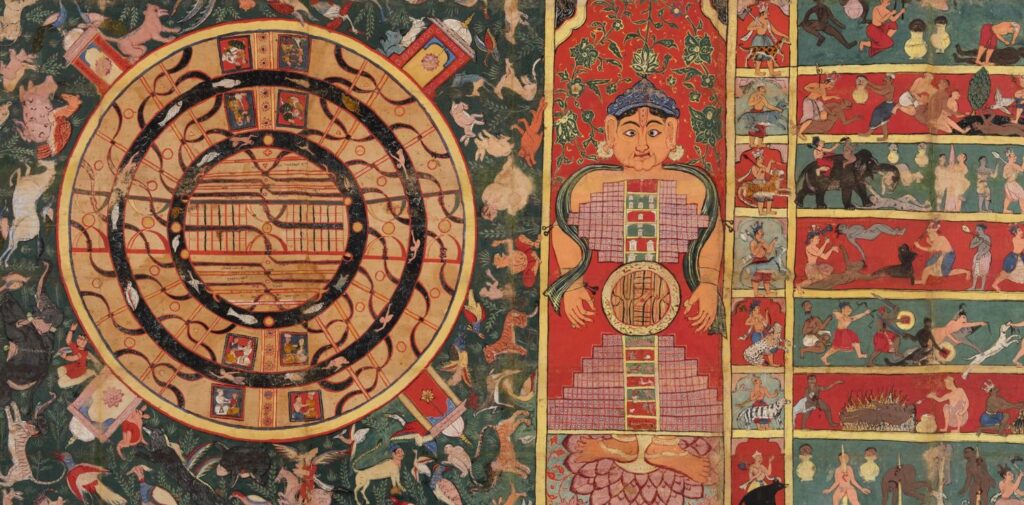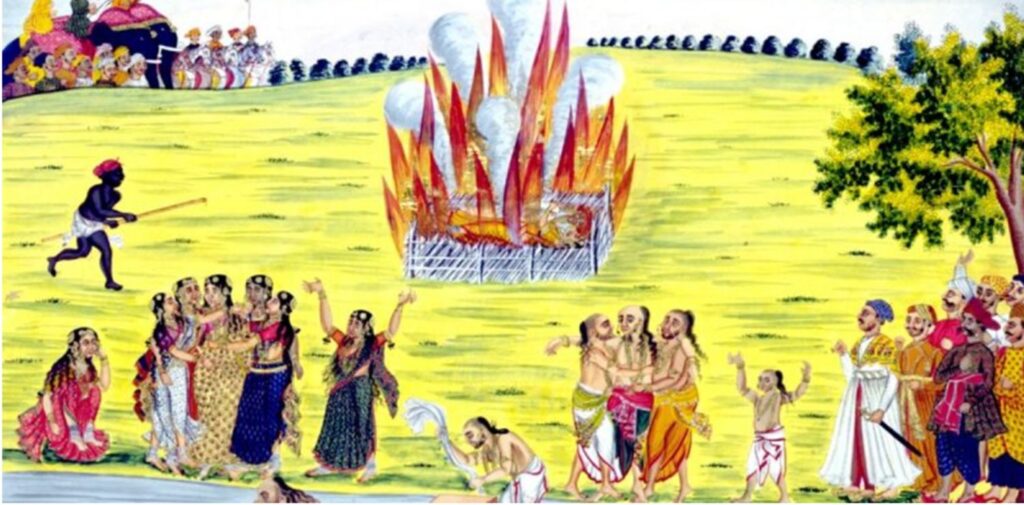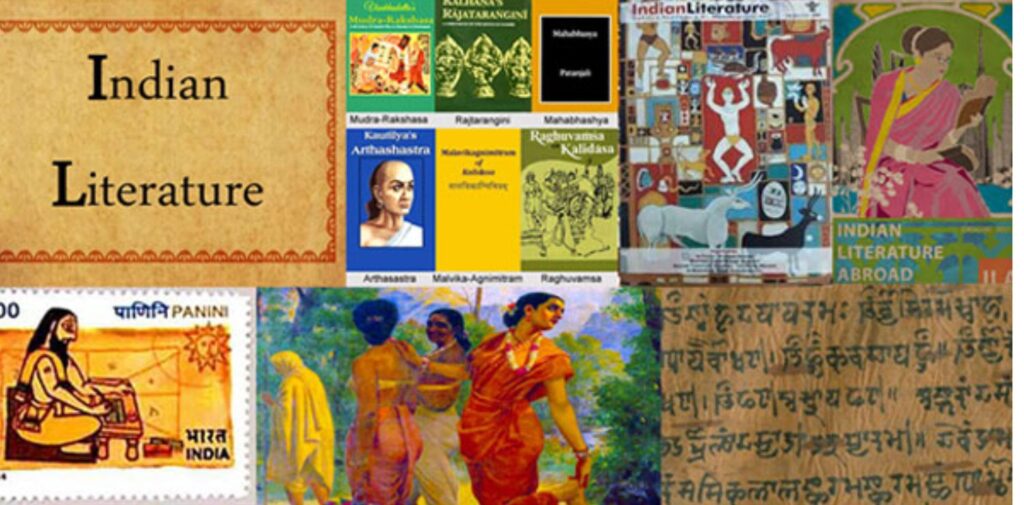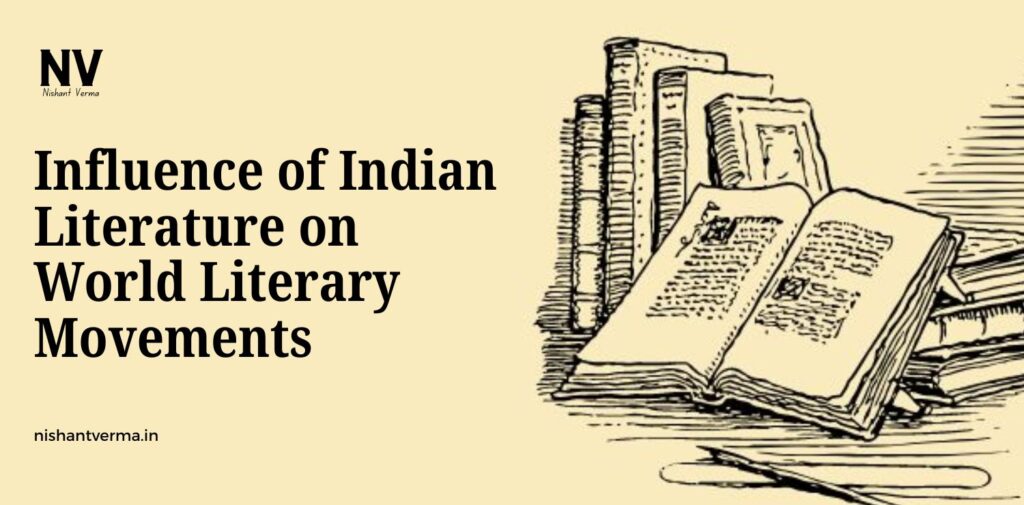Indian literature is as ancient as the land itself. With a history that spans thousands of years, it has contributed immensely to the world’s literary heritage. From the epic tales of the Mahabharata and Ramayana to the philosophical writings of the Upanishads, and from the poetry of Rabindranath Tagore to the modern works of Arundhati Roy, Indian literature has been a rich source of inspiration. This literary tradition has not only shaped the thoughts and culture of India but has also influenced global literary movements in profound ways. The impact of Indian literature can be seen in various literary trends across the world, from the rise of orientalism in Europe to the post-colonial literary renaissance.
The Early Influence: Ancient Indian Texts and Global Thought
Indian literature’s influence began to spread beyond its borders in ancient times, primarily through its religious and philosophical texts. The Vedas, Upanishads, and other ancient scriptures shaped not only Indian thought but also had an impact on early global philosophies. The Buddhist teachings, which originated in India, spread to various parts of Asia and influenced literary traditions in places such as China, Japan, and Southeast Asia. The Buddhist texts, with their teachings on suffering, enlightenment, and the nature of existence, contributed to the development of philosophical literature in these regions.
The concept of ‘dharma’ or duty in Indian literature found a strong resonance with Western philosophers. For instance, the famous Greek philosopher, Socrates, and Indian thinkers like Kautilya shared ideas about ethics, justice, and the nature of a good life. The Indian epic literature, especially the Mahabharata, presented complex characters and moral dilemmas that provided deep insight into human nature. This influenced literary forms and the development of character-driven narratives in many cultures. The ancient Indian literary tradition thus laid the foundation for many literary movements around the world.

The Rise of Orientalism and Indian Influence in Western Literature
During the 18th and 19th centuries, the interest in Indian literature grew significantly, especially with the rise of orientalism in Europe. This period marked a growing fascination with the East, particularly India’s ancient culture, philosophy, and spirituality. Scholars and writers in Europe became increasingly interested in the sacred texts of India, especially the Bhagavad Gita and the Upanishads, which they saw as profound and exotic works of wisdom.
One of the earliest Western thinkers to be influenced by Indian philosophy was the German philosopher Arthur Schopenhauer, who was deeply inspired by the Upanishads. He viewed them as containing some of the deepest insights into human existence, particularly the concept of suffering and the pursuit of ultimate truth. This influence of Indian philosophy can also be seen in the works of poets like Ralph Waldo Emerson and Walt Whitman. Emerson, a central figure in the American transcendentalist movement, was deeply influenced by the Bhagavad Gita and incorporated its ideas on the unity of existence and self-realization into his own writings.
Similarly, the romantic poets in Europe were influenced by India’s rich mythological and cultural heritage. The mystical elements in Indian literature, particularly the spiritual and poetic works of the Bhakti and Sufi traditions, found a place in the works of European poets. The idea of divinity in nature and the reverence for life found in Indian literature became key elements of the Romantic movement in Europe.

The Indian Renaissance and Its Impact on Global Literary Movements
The Indian Renaissance in the 19th century brought a wave of literary reform and creativity, which had a profound effect not only on India but also on global literary movements. This period, marked by social reformers like Raja Ram Mohan Roy and writers such as Rabindranath Tagore, saw the birth of modern Indian literature. Tagore’s works, in particular, were translated into several languages and reached an international audience.
Tagore’s Nobel Prize in Literature in 1913 brought Indian literature to the global stage. His poetry, which blended traditional Indian themes with Western literary forms, was widely appreciated for its emotional depth and spiritual insight. Tagore’s influence on global literature was immense, especially in the context of the development of modernism. His ideas on the interconnectedness of all people, the nature of divinity, and the importance of humanistic values influenced writers and poets around the world. His works were admired by leading literary figures such as W.B. Yeats, Ezra Pound, and T.S. Eliot, who recognized the universality of his themes.
The Indian Renaissance also saw the emergence of progressive social reform through literature. Writers such as Ismat Chughtai, Premchand, and R.K. Narayan began to tackle issues like caste discrimination, women’s rights, and rural life, which resonated with similar movements in Europe and the Americas. Their realistic portrayal of society and focus on social issues added a new dimension to global literary discussions, influencing writers in the West and sparking discussions on social justice, equality, and human rights.
Post-Colonial Literature and Indian Voices
The 20th century witnessed the rise of post-colonial literature, where Indian writers played a significant role in shaping literary movements. The period after independence in India was marked by a surge of literary production, with writers like Mulk Raj Anand, Khushwant Singh, and Arun Kolatkar bringing the Indian experience to a global audience. However, it was the works of authors like Salman Rushdie, Arundhati Roy, and Vikram Seth that truly globalized Indian literature.
Salman Rushdie’s Midnight’s Children, which won the Booker Prize in 1981, is often regarded as one of the most important post-colonial novels. Rushdie’s blending of historical events with magical realism and his exploration of identity, migration, and the legacy of colonialism opened new pathways for world literature. His work not only made an impact in the West but also resonated with readers in post-colonial societies across the world. Rushdie’s contribution to world literature led to the rise of the “Indian diaspora literature” genre, which explored themes of migration, identity, and belonging.
Arundhati Roy’s The God of Small Things, which won the Booker Prize in 1997, brought Indian literature to the forefront of global literary discussions. Her portrayal of Kerala’s social and political landscape, combined with her distinctive narrative style, earned her widespread acclaim. Roy’s works, which often explore themes of social inequality, caste, and the effects of colonialism, have been influential in shaping global post-colonial thought.

The Globalization of Indian Literature: Contemporary Influence
In the contemporary world, Indian literature continues to have a significant influence on global literary movements. The rise of Indian authors writing in English has led to a greater presence in international literary circles. Authors such as Kiran Desai, Aravind Adiga, and Chetan Bhagat have achieved success both in India and abroad. Their works, often dealing with themes of modernity, globalization, and social change, reflect the evolving nature of Indian society and its integration into the global literary landscape.
Indian literature’s influence can be seen in the global popularity of Indian English novels, films, and poetry. The unique narrative styles, rich storytelling traditions, and vivid portrayal of Indian culture and history have drawn readers from all over the world. The success of Indian literature in the global market has also opened doors for writers from marginalized communities within India, including Dalits, tribals, and women writers, to showcase their works on international platforms.
Moreover, Indian literary themes such as spirituality, family dynamics, social structures, and identity have found resonance in different parts of the world. The growing interest in yoga, meditation, and Indian philosophy has also fueled the global appeal of Indian literary works that delve into these subjects. In this way, Indian literature continues to shape and contribute to global literary trends, influencing the way people around the world think about culture, identity, and the human experience.
Conclusion
Indian literature has played an essential role in shaping world literary movements, offering unique perspectives on humanity, culture, and society. From ancient texts to modern novels, India’s literary heritage has had a lasting impact on global thought, inspiring writers, philosophers, and readers worldwide. Whether through the spread of spiritual philosophies, the rise of post-colonial narratives, or the influence of contemporary Indian authors, Indian literature continues to enrich and diversify the global literary landscape. As Indian voices continue to rise on the world stage, their contributions will undoubtedly remain integral to the ongoing development of world literature.




